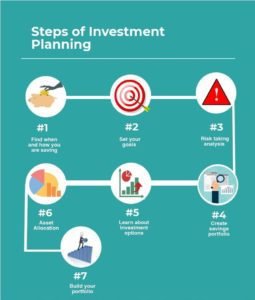Introduction
The fintech sector is witnessing a lot of upward mobility. They have completely disrupted the traditional banking services and are providing banking services right on the fingertip of customers. The recent Covid-19 pandemic has taken its toll on almost all the sectors. But, in the fintech sector, technologies are helping in automating the financial processes.
The employees can work remotely and can provide financial service to clients via online medium. There are a lot of start-ups that have launched themselves recently, they require IT & banking experts who could work with them. Let us see how one can find a fintech job amidst the Covid-19 scenario.
Where to find Fintech Jobs?
You can look for fintech jobs on LinkedIn which is a great platform. A lot of firms put their job requirements on this platform and people can apply themselves for any particular job role in the fintech industry.
There are a lot of job opportunities in the fintech sector, and you should keep searching on corporate social media sites. There is no need to be an expert in financial knowledge, there are a lot of other job roles in the fintech sector which need IT-experts. Fintech has adopted a lot of new technologies like machine learning, artificial intelligence, etc. They need deep-technology experts who can make better algorithms.
Tips for Finding a Job amidst Coivd-19 Scenario
• Keep yourself connected to the market. You can apply for jobs via LinkedIn, mail and you should keep doing it. Let people know your skills beforehand.
• Keep your business profile & C.V maintained. You can display your acquired skills on your profile so that people could reach out to you with a little bit of prerequisite.
• There are various job roles in fintech, make sure to analyze your skills and apply for that job role. It will help you in getting the job easily. Make sure you keep yourself updated with various job roles in fintech like Customer Support Executive, Software Developer, Financial Analyst, Data Scientist, Business Analyst, etc.
What to do?
• If you have a bachelor’s degree in finance, accounting, or economics, then it is best for you to go in the fintech sector. There is no compulsion of getting a degree to enter the fintech industry.
 One can know more about the fintech sector via online Fintech courses available on the internet. Many prominent courses/certifications also come with hiring chances.
One can know more about the fintech sector via online Fintech courses available on the internet. Many prominent courses/certifications also come with hiring chances.
Make sure you have some education/certification before entering in the fintech industry, it will help in your upskilling.
• A job seeker in the fintech industry should analyze one’s skill set. Make sure that you have skills like analytical skills, programming skills, etc. One can also learn about machine learning, blockchain, deep learning, etc.
There are also jobs for cybersecurity in the fintech sector. The more skills you have, the more valuable you will be as an employee.
Trends in the Fintech Sector
One should be aware of the trends in the fintech industry if you are seeking for a job. This will help you in learning new technologies and be updated about the industry. Some of the latest trends in the fintech industry are:
• Platform as a Service (PaaS) is being adopted by many fintech firms.
• Usage of artificial intelligence, machine learning in automating processes like credit report generation, customer support, etc. It helps in cost optimization.
Conclusion
This is the right time to start building your Fintech Career. A lot of new companies and old giants are witnessing major growth. The fintech industry is predicted to grow at a massive annual growth rate of 24.8% until 2022. This was all about how one can find a job in the fintech industry.



 Remember that interviewers love examples. So, keep feeding them with appropriate real-life examples. To learn about new topics such as international investing, explore
Remember that interviewers love examples. So, keep feeding them with appropriate real-life examples. To learn about new topics such as international investing, explore  It is questions like this that makes taking a
It is questions like this that makes taking a 
 This is an interesting and highly practical way to gain real-life
This is an interesting and highly practical way to gain real-life  These events are excellent venues for networking with like-minded professionals who work for a range of different organizations. A simple Google search with keywords like Data Science meetups, along with the name of your city, will generate information about ongoing or upcoming events near you.
These events are excellent venues for networking with like-minded professionals who work for a range of different organizations. A simple Google search with keywords like Data Science meetups, along with the name of your city, will generate information about ongoing or upcoming events near you.





